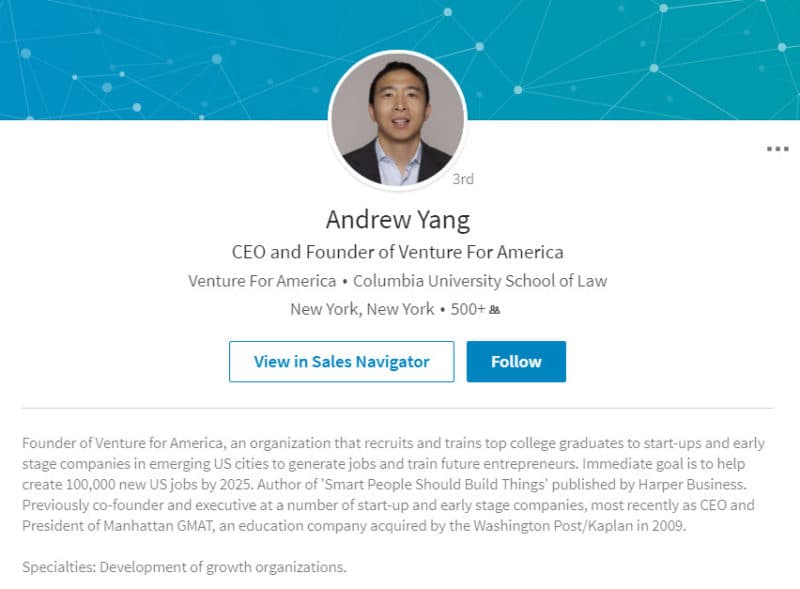Case Study #7: Sold to a Competitor
Sold to a Competitor
Andrew Yang was the CEO of Manhattan GMAT when he sold to a competitor, Kaplan, in 2009.
was the CEO of Manhattan GMAT when he sold to a competitor, Kaplan, in 2009.
At the time of the sale, the company was doing $11M annually. Andrew stayed on post-acquisition and added an additional $6M a year in revenue before departing to start a non-profit.
What is the GMAT?
The GMAT is a computerized standardized exam (think ACT or SAT, but much harder) which students take in order to enter the top business schools.
Manhattan GMAT only hired instructors who scored in the 99th percentile on that test. They then paid them $100/hour as a base salary.
How did Andrew get involved?
Andrew was first asked to help create a curriculum for the one-man band that was the kernel of what would become Manhattan GMAT. He did just that and from 2001-2005 helped grow the company to $2M in annual revenue.
Why did he decide to sell?
The seeds for the sale were actually sown during a legal exchange. The general counsel at Kaplan had sent a letter identifying a question that was on one of Manhattan GMAT’s online forums. This question bore a close resemblance to a Kaplan question. Andrew was asked to remove the question.
Andrew responded promptly and said he would take the question down. He said also that he hoped future interactions would be around more positive issues. This took the general counsel by surprise, who subsequently shared the positive experience with the CEO of Kaplan. A few weeks later, the CEO of Kaplan asked Andrew to lunch.
Andrew had no plans to sell at the time, much less have the business sold to a competitor. Kaplan wasn’t offering to buy, but they were direct competitors. Kaplan’s CEO indicated that he would like to be part of any discussion for acquisition if and when Manhattan GMAT decided to sell.
Key lesson here: Being courteous when complying with a legal request isn’t hard and it may lead to wonderful results.
A year later, as more investment offers had come in, a financially-based offer from one of Kaplan’s competitors, Princeton Review, came in. Andrew let Kaplan know that a deal was in play.
Kaplan came back with a strategic valuation which offered roughly 40% more than the financial offer. There was really only one choice at that point. Andrew accepted Kaplan’s offer.
What was the toughest part of diligence?
Keeping the process from his staff. Andrew prided himself on transparency. He was having to produce all the necessary due diligence documents personally, though it seemed he was making strange requests of his staff for obscure and old reports.
Manhattan GMAT had been the tough, scrappy underdog, and now they were going to sell out to the “man,” the biggest corporate behemoth in the space.
Andrew made up for what he considered a departure from a core value of the old company by setting aside 10% of the earnings of the sale to pay out his staff based on service and loyalty. He particularly remembers that one of the team members used that payout for a down payment on a house.
Andrew now runs Venture for America, which places top college graduates in startups for two-year periods to help build the next generation of entrepreneurs. That venture grew directly out of his time building Manhattan GMAT. You can learn more about it here.
If you liked this case study and would like to read others, check out our case study archive.



